




Hi everyone! I’m Pete and I’m the new Communications Officer at Bipolar Scotland and Editor of On the Level. I’ve taken over the reins from Sian who has of course done an incredible job these last few years. I’ll try not to mess it up!
There’s been a lot happening here at Bipolar Scotland, especially with our Time For Transformation conference coming up on the 9th of October. If you haven’t already, get your tickets soon as they’re going fast!
This issue is all about creativity and bipolar. We’re going to look at the links between the two and try to explore why they seem so closely related.
This is an issue close to my heart as I have always been a creative person. I see it as being a really important part of my sense of self, and I have always worried that if I recover from my mental illness, I might lose it. I’m happy to say that this has not been the case, and in fact I think I’ve become more creative as I have recovered,
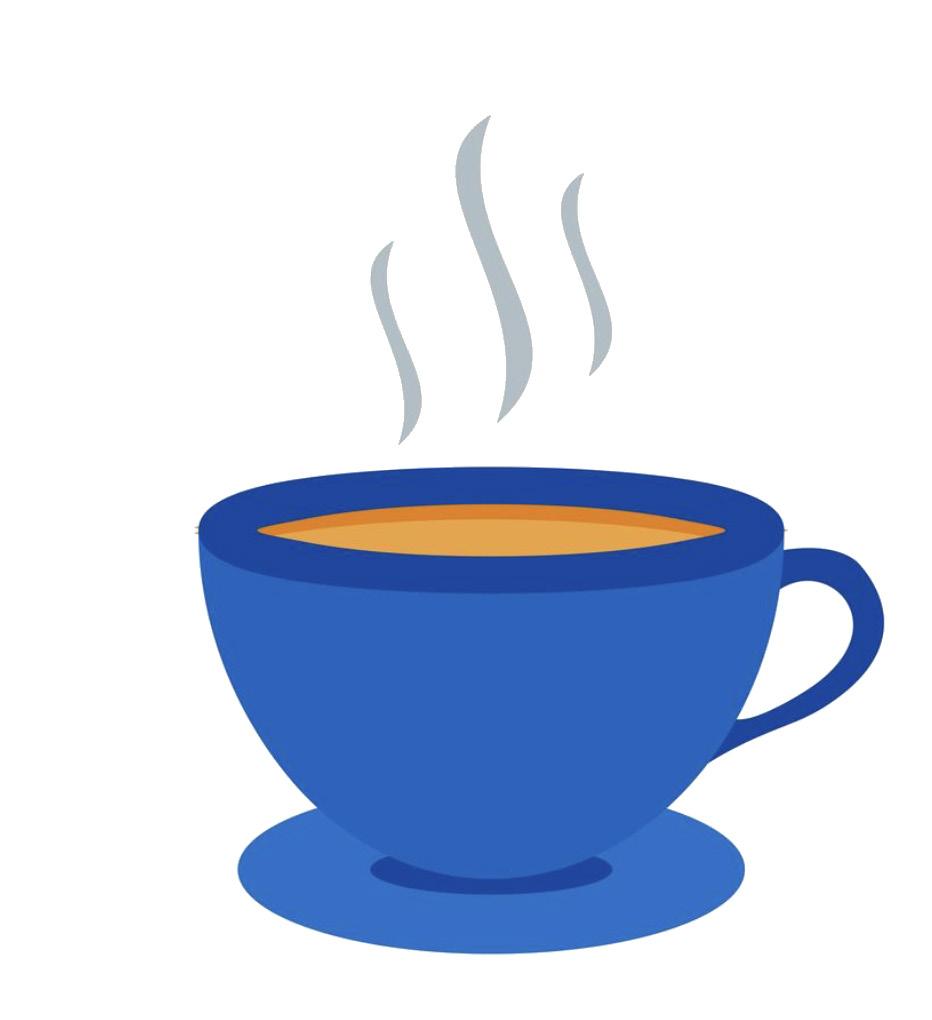

becoming less chaotic, more focussed and therefore more consistent and productive.
Anyway, enough about me! In the magazine there’s a great interview with bestselling children’s author Dame Jacqueline Wilson starting on P6, some lovely and thoughtful submissions from you, our dear readers, on pages 16 &17, on how writing and journaling can ease bipolar symptoms and thoughts on spirituality and of course our resident columnist David Carr gives us his insightful reflections on the connection between bipolar and creativity on P12.
So stick the kettle on, sit back and peruse at your leisure. And I’ll hopefully see you all at the conference!
Keep on keeping on!
Pete Stanton Editor

Picture Imperfect Acclaimed children’s author Jacqueline Wilson on how to speak to kids about mental illness.
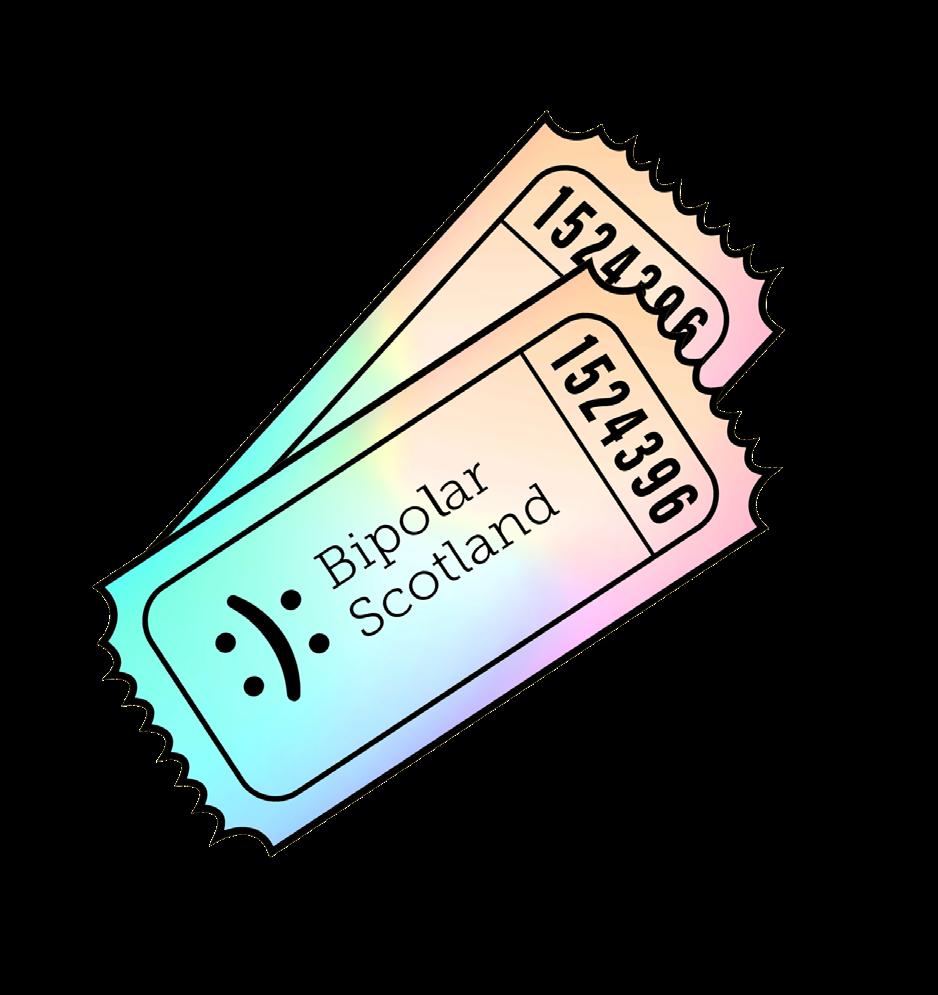
9 6 14 18
It’s almost Time For Transformation! Get the latest info and updates about our upcoming conference.

Edited by Jamie Stewart and Pete Stanton
Please note that the views and opinions expressed in On The Level are not necessarily those of Bipolar Scotland.
Submissions: If you would like to submit a piece of writing, a photo or an idea to be considered for future issues of On The Level, please get in touch with petes@bipolarscotland.org.uk
We would also love your feedback about On The Level. Send us an email or reach out to us on social media. You can find us on Instagram (@bipolar_scotland) and Facebook (@bipolarscotland)
©Bipolar Scotland 2025 Scottish Charity No. SC021705 Company No. 163305
T: 0141 560 2050 E: info@bipolarscotland.org.uk bipolarscotland.org.uk
Our friends at Edinburgh University give us some top tips on moodtracking.
Writing Through the Storm Gillian Sheriff talks to us about writing through challenging times.
Disclaimer: On The Level works in good faith with a range of subject-matter experts and official bodies to produce accurate and well-researched content. While every effort is made to ensure the reliability and accuracy of the information presented, errors may occasionally occur. Where necessary, we will issue corrections or clarifications.
We’re celebrating some fantastic news! We’ve been awarded two new multi-year grants to help us keep making a difference.
The first will fund Momentum Works – a new peer-led service to help people at an early stage of their journey with bipolar - to feel more confident at work or study.
And secondly, our Beyond Diagnosis service has secured a further two years of funding from the National Lottery. This vital service supports


people at such a vulnerable time, and we’re so glad it can continue.
And there’s more good news – our Selfmanagement Training has been shortlisted for not one, but two awards at the 2025 Self Management Awards! We’re finalists in both the Empowering Self Management Project and Self Management Resource categories. A big well done to our brilliant Training Facilitators, Hazel and Kerry!

Your gift helps us keep going
If you’re able to give, even a little, your donation can go a long way in helping people across Scotland who are living with bipolar. We rely on the kindness of supporters like you to keep our services running.
Small Donations, Big Impact
£20 funds one online support group session
£32 funds one session with a peer support worker
£60 funds one online training session for volunteers
DONATE HERE: https://bipolarscotland.org.uk/
Do you prefer the human touch? Give us a call on 0141 560 2050
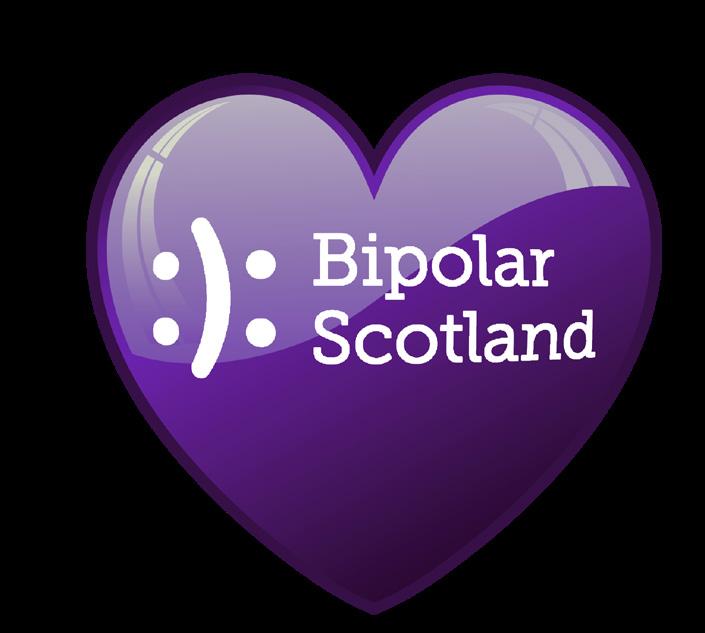



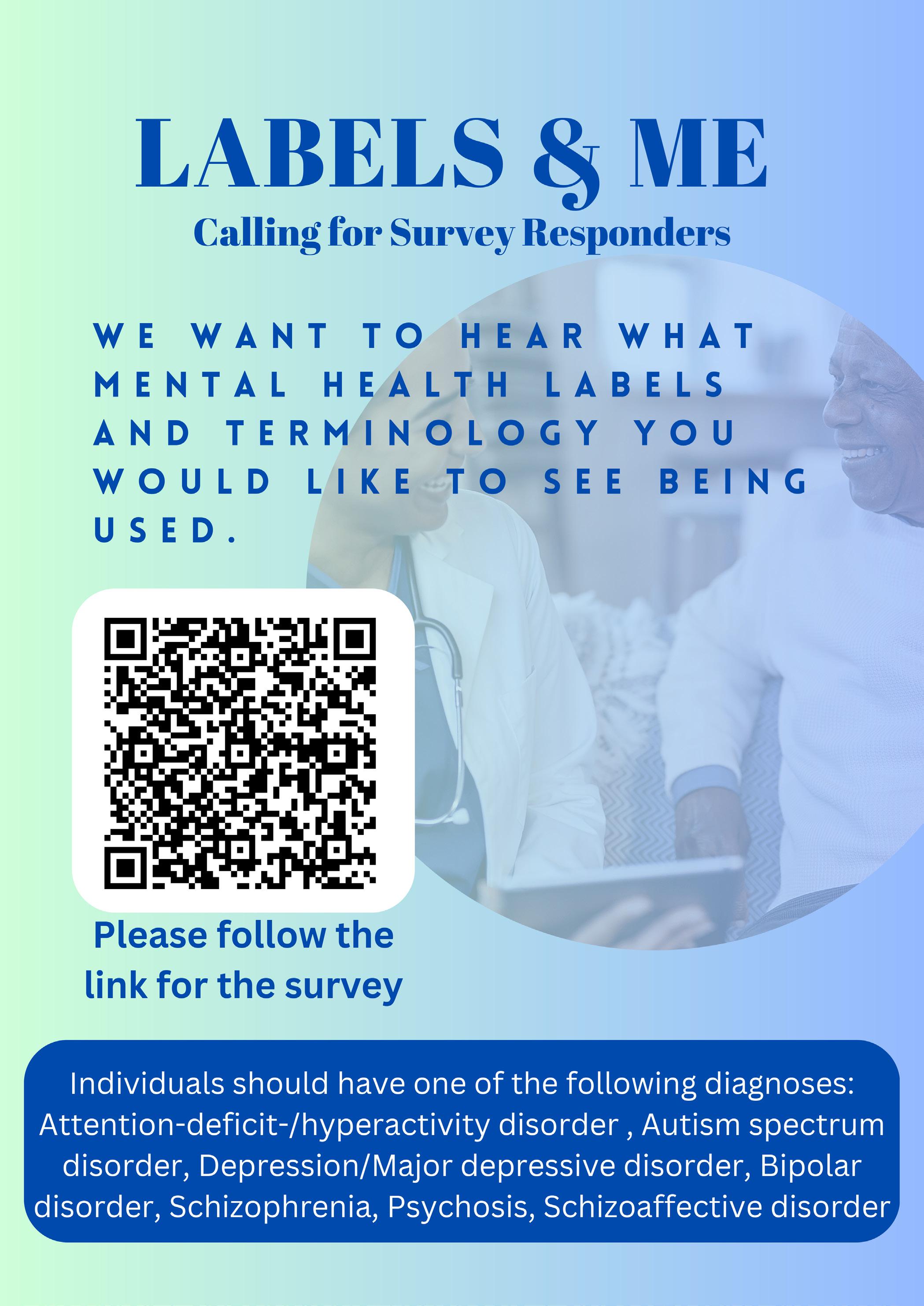
https://tinyurl.com/4avwja5v

Do you recall receiving any particularly memorable feedback from readers of The Illustrated Mum – especially those who had experience with bipolar in their own families?
children’s author who is now turning her attention towards the grown-up world with her new novel Picture Imperfect. We sat down to chat with her about how she manages to broach difficult subjects like mental health for kids and now, for adults.
Picture Imperfect is an adult sequel to The Illustrated Mum, revisiting Dolphin and Star as grown-ups. What inspired you to continue their story from an adult perspective, and did writing for an older audience change how you approached their journey?
The Illustrated Mum has always been my favourite out of all my children’s books, and those characters have remained with me for many years. I wanted to find out what effect their troubled childhood had on my sisters Dolphin and Star. Star had to take over mothering Dolphin when the sisters were young. Would she have carried on in that role – or would she have distanced herself as much as she possibly could? Star was always the bright one – so would she have worked hard and secured a professional job for herself? Dolphin was the vulnerable younger one, and seriously dyslexic. What would have happened to her? And what about Marigold herself? Would she have made a heroic attempt to comply and take her medication and lead a relatively normal life? Or would she have stayed a rebel, hooked on excitement and stimulation and wild relationships? I knew the answers almost as soon as I’d asked myself the questions and got writing!
I was very touched by the number of children who wrote to me, or who came to one of my events. So many identified with my girls – and quite a few adults also told me their life stories too. And I met quite a few ‘illustrated mums’ – not with bipolar disorder, just with a liking for multiple tattoos. In fact, my then illustrator Nick Sharratt had several women desperate for him to design a new tattoo for them.
Your books often explore complex family dynamics with great sensitivity. What challenges did you face in writing Picture Imperfect and portraying the lasting impact of Marigold’s bipolar on Dolphin and Star as they’ve grown up?
Sometimes people change enormously over twenty years – and yet I think childhood experiences generally influence your personality and lifestyles. Star always seemed to me the sister who would work hard and somehow escape her family circumstances. Dolphin was far more likely to stick around and try to take responsibility for Marigold – she tended to hero-worship her when she was little, and badly needed to have her mother’s love and care though it wasn’t always available. I wanted to revisit her at a time of her life when she’s exhausted and almost past coping. She resents Star for making a determined effort to separate herself from the family and yet can’t quite break away to discover how to achieve the sort of life she wants. The story starts when she’s reached crisis point.
Have your own experiences or observations around mental health influenced the way you write about emotions and psychological struggles in your characters?
Both my parents were disturbed people, never diagnosed with any significant mental illness, but certainly turbulent resentful angry spouses who always regretted their marriage, but in their day, divorce was considered a disgrace. Home life was never peaceful! I think I had to grow up much too early in that very unsettled and often frightening home environment – but it helped me try to work out how to deal with strange behaviours, perfect training for a would-be writer.
You’ve long been one of the standout authors who never shy away from tackling difficult topics, including mental health, in children’s literature. Over the years, have you noticed a shift in how mental health is discussed in publishing, and do you think there’s still progress to be made?
I think as a society we’ve become much more aware of mental health, and it’s far less likely to be seen as a stigma, which is obviously a good thing, especially if it means people suffering with mental disorders feel free to ask for help. Hopefully we’ve become much more aware of the effect disturbed adults can have on children, though parents suffering from various mental health conditions often make heroic attempts to care for and comfort their offspring. There are various examples of adults who are seriously withdrawn and depressed in children’s books from the past. I’m thinking of the Edwardian classic The Secret Garden. Colin’s desperately unhappy father, Mr Craven, can’t bear to look at his son. Colin and cross sour Mary, the heroine of the story, are very sensitively drawn and psychologically accurate.
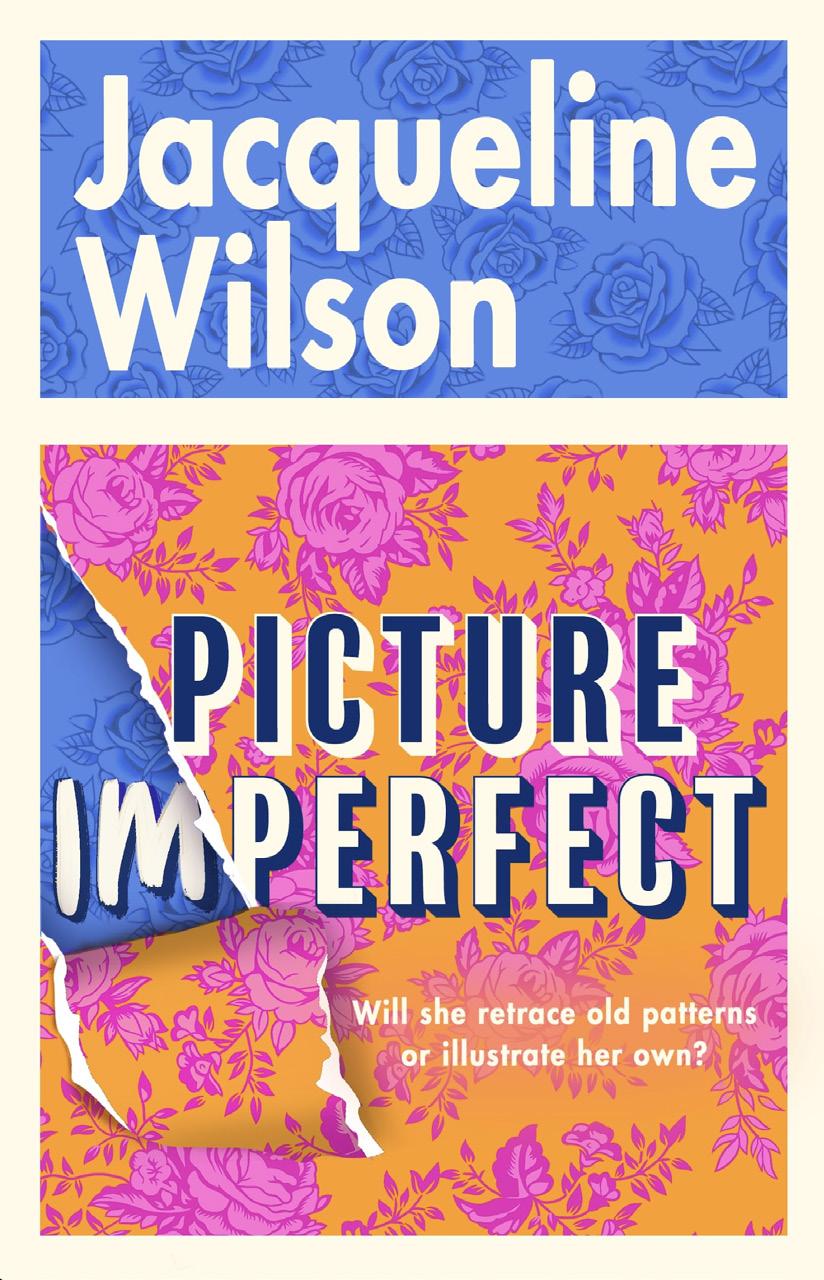
What do you hope Picture Imperfect will offer readers – especially those who have loved ones with bipolar or are facing mental health challenges themselves?
I hope readers will resonate with the characters and understand why they behave as they do – and if any are in similar circumstances they might feel comforted to know that many other people are also experiencing their anxiety and guilt and longing for some kind of normality in their lives. I’d like them to see that you can never give up hoping that with medication, therapy and luck, many people can achieve peace and happiness with bipolar disorder – and to have the courage to cope in whichever way seems best for everyone if this is not the case.

I got a little unwell last week - social media really did a number on me.
I don’t think I am alone in that, I felt so much sadness, I am not a political person and I don’t express those views often.
I like people, ALL people and I am respectful, I try to keep things balanced.
My only escape from last week was music, I don’t often listen to sad music anymore, there is of course a time for that.
I just put on a play-list, and Iron Maiden lit me up! It is such adventurous music, really charging, galloping stuff, it was what I needed on my walk across the Tay road bridge to work.
Northern Soul, The Prodigy, Faithless, Suede - it was all blaring out my headphones.

I have a trip to Butlins with my best mate coming up, its a music event, I cannot wait!
There is such trouble in the world and when I get unwell, I get a little obsessed with that.
In truth, there is nothing I can do to change anything, I feel powerless in that way but maybe a little selfishly I can try and keep my own little world as good as possible.
I will never tell anyone what to do but I would say - take a break from social media if it gets too much.
If you are reading this you are probably Bipolar, we tend to dwell on things in a sometimes unhealthy way.
Years ago an old boss of mine suggested I was mentally ‘weak’ in some ways he was right but in other ways he could not be more wrong.
We fight this everyday - keep fighting!
Much love to everybody, Jum xx
By, Miss Daljit Purewal and Miss Georgina Shajan
In this month’s Research Corner, Miss Daljit Purewal and Miss Georgina Shajan, Medical Students at the University of Nottingham take a closer look at how mood tracking can help people with bipolar. Drawing from their research project, they explore how regularly monitoring mood may reduce the risk of relapse and help people better understand and manage their condition.
Keeping track of your mood, whether through a journal, calendar, or through an app is something many people with bipolar do regularly. For some, it’s a useful way to feel more in control. For others, it can feel like a constant reminder that something’s “wrong.” So, is mood tracking actually helpful, or can it sometimes do more harm than good?
As part of a major research project at the Institute of Mental Health in Nottingham, we looked at this question more closely. Our aim was simple: to find out whether mood monitoring really makes a difference for people living with bipolar.
So, what even is Mood Tracking?
Mood tracking means keeping a regular record of how you’re feeling over time. It can be as simple as writing a few sentences in a diary or using a colour-coded calendar. On the techier side, there are apps and smartwatches that let you log your mood, sleep, energy, and activity levels throughout the day. Some of these apps even run in the background, picking up data automatically without you having to lift a finger.
People with bipolar often use mood tracking to spot early warning signs that their mood might be shifting, such as with changes in sleep, energy, or stress. Some find it helps them catch the signs of an oncoming high or low early, which means they can act before things get worse. Others say it helps them see how things like sleep, medication, or daily routines affect their mental health. It may also help them to explain their mood patterns more clearly to their doctor or therapist.
There is some evidence that being more aware of your mood changes can improve your understanding of what’s happening and help to spot relapses sooner. But here’s the catch: it’s still not clear whether mood tracking reduces symptoms like depression or mania, or whether it helps prevent relapse altogether.
That said, spotting an episode early, especially if you haven’t noticed the changes yourself, can mean faster access to treatment and fewer disruptions to your life. As access to mental health care becomes more stretched, tools like mood tracking could play a bigger role in helping people manage their wellbeing in between appointments.
Because it’s easy to use and can fit into daily life, mood tracking could also work well alongside other helpful tools, like psychoeducation (learning about your mental health), therapy, or peer support. It’s not a cure, but it might be one small part of a bigger picture that helps people feel more in control.
What Do People Think About Mood Tracking?
Tracking mood can bring varied results, and individuals with bipolar often experience it in different ways.
Some say it’s a helpful tool that boosts their awareness and helps them catch the early signs of a mood shift. By spotting these signs early, they feel more able to manage their wellbeing and avoid a full relapse.
But others feel the opposite. For some, constantly thinking about mood can become overwhelming. It might remind them of difficult times or make them more anxious, turning mood tracking into more of a burden than a benefit.
Many people now prefer digital mood tracking through apps or online tools because they’re easier to stick with in the long run. These tools can help you look back over weeks or months to spot patterns in your mood, sleep, energy, or medication effects. Plus, tracking in the moment, instead of trying to remember how you felt later, can give a more accurate picture of what’s really going on.
Digital mood tracking also opens the door to new features designed for convenience like reminders, personalised alerts, or even connecting your data with your mental health team for support.
To really understand if mood tracking helps, our research team took a deep dive into the best scientific studies available.
We looked for high-quality studies (called “randomised controlled trials”) where people with bipolar used mood tracking as an intervention using a method called Ecological Momentary Assessment (EMA), for at least three months. These studies had to include a comparison group, who were people who didn’t track their mood, so we could see if there was any difference.
Out of over 23,000 papers, we carefully selected just eight that met strict criteria. Together, these studies involved over 1,200 people.
What’s EMA Anyway?
Think of EMA as quick mood check-ins right on your phone. It might ask you something simple like, “How are you feeling right now?” a few times throughout the day. The goal is to capture how your mood changes in real time and build a clearer picture over days and weeks. There are two main ways EMA works:
• Active EMA: This means you actively report how you’re feeling by answering short questions. Research shows this works well and people generally stick with it, and the mood reports match up with what doctors usually find through traditional methods.
• Passive EMA: This one works in the background, gathering information like how much you walk, how often you use your phone, or how many texts you send, without asking you directly. However, the results are mixed so far. Different studies measure different things, and the data doesn’t always reflect how people really feel.
What’s the Takeaway?
1. Mood tracking isn’t a silver bullet. Unfortunately, mood monitoring didn’t clearly reduce symptoms of mania or depression for people with bipolar. There was a small sign it might help with mania, but it wasn’t strong enough to be sure.
2. It doesn’t prevent relapse — yet. We hoped to find that tracking mood could help people catch warning signs early and avoid hospital admissions. But the evidence just wasn’t strong enough to say one way or another.
3. It’s simple, cost-effective, and can be done from home.
EMA could offer a more accessible alternative to clinic visits, making research and treatment easier for both participants and researchers. It’s also more personal and can pick up on changes in mood across days and weeks.
4. Timing matters.
Our moods can change throughout the day, so it’s important to check in at the same time every day for the most accurate results.
5. It’s not one-size-fits-all. There was a lot of variation in how mood tracking was done, from how often people were asked to check in, to how their moods were rated. Some methods worked better than others, especially in tracking manic symptoms, which can be tricky.
Is mood tracking worth it then?
Mood tracking isn’t a miracle tool, but it isn’t harmful either and it might help in certain ways, depending on the person and how it’s used.
Some people find mood tracking gives them more awareness of their moods, patterns, and triggers. Others find that tracking their feelings too often makes them feel worse, like being stuck in a loop of constantly thinking about their mental health.
So, while it might not change your symptoms dramatically on its own, mood tracking can still be part of a useful self-care routine, especially when paired with other supports like medication, therapy, and psychoeducation.
One thing’s clear: people want mood tracking tools that are simple, respect their privacy, and give them control over their data. Many told us they like using these apps to better understand their moods for themselves and not necessarily to share everything with their doctors.
What’s next?
Researchers say more studies are needed, especially ones that focus specifically on people with bipolar.
They also want to explore:
• Who benefits the most from mood tracking?
• Are there ways to make it more helpful (and less burdensome)?
• Can combining mood tracking with other tools (like therapy or personalised alerts) make a bigger difference?
Final thoughts
Mood tracking apps, especially those that ask you to check in on your feelings regularly, can be a useful and reliable way to monitor symptoms of bipolar. They might even help people feel more in control of their daily mental health. But there’s still work to do to make sure these apps are safe, easy to use, and truly helpful for everyone.
So yes, your phone can help you to manage your mental health. But only if the technology is smart, simple, and built with empathy.
As research continues, we’ll learn more about how to make mood tracking truly helpful, especially in a world where digital tools are becoming more common. Until then, the best guide is your own experience.
Tips if you’re thinking about mood tracking:
Start simple: You don’t need a fancy app. A simple mood journal or colour-coded calendar can be a great place to begin.
Track what matters to you: You could log mood, sleep, energy, medication, or stress levelswhatever helps you notice patterns.
Watch how it makes you feel: If mood tracking starts to feel overwhelming, obsessive, or discouraging, take a break or speak to a mental health professional.
Use it with support: Mood tracking is most helpful when you review it with someone you trust — like a therapist, psychiatrist, or peer support group.

An article about bipolar disorder and creativity almost writes itself. Indeed, With the advent of generative AI, it can write itself. I asked Gemini for its views. It gave me a list of famous creative people with bipolar disorder. You can probably think of your own names. I probably didn’t need to use AI.
The link between bipolar disorder and creativity is well established. It rings true for many of us. Those of us who have experienced hypomania or mania will know what it’s like to have one idea come after another after another, each sparking multiple trains of thought.
The message that bipolar equals creativity is a well-intentioned reminder that people who live with the illness can do great things. Fighting through the illness, we can heroically rise above and create great art. Indeed - it is because of the illness that we are creative. It is a gift.
I’d like to add some small notes of dissent. It’s great that we have role models of bipolar genius - if tortured genius. But we cannae all be Robert Burns. Toxic positivity is a thing and the idea that bipolar disorder confers a creative spark sets up unreasonable expectations - from others - but especially from ourselves.
Because many people struggle so much with bipolar disorder that they feel unable to do anything creative. Try being creative when you can’t get
A
out of bed. Or - when one has been over-creative - there’s the cringe at the abandoned remnants of half-completed, half-arsed projects. As bipolar superhero Carrie Fisher observed, ‘All bipolar projects are at the early stage.’
I am often regarded as a creative person. I accept the compliment. Besides writing, my creative outlets are cooking, singing and drawing. So I should be grateful that bipolar disorder has conferred on me the gift of creativity? There have been times that I have simply taken no interest in my creative pursuits. It is a bitter twist that for all that bipolar disorder can encourage creativity, it can also stamp on it.
Just before I was sectioned, I was at the early planning stage of my Great Novel which would - somehow - change the world. The novel was a flood of ideas. I was pursuing multiple lines of background research - by which I mean I was charging around Glasgow having adventures, getting into scrapes, and poking my nose into corners I shouldn’t have poked it. Some might call it Picaresque. But I was putting myself in harm’s way.
I never did write my novel. Hospital - and olanzapine - intervened. Its précis was deemed psychotic and I was left with an extensive but disordered collection of mental Post-It notes. I haven’t to this day put my ideas down on paper and - to be honest - I’m not sure the world needs another mental health memoir. I have a
better book planned.
The thing is - I love writing and the idea of writing a book - if not that bookwas no great stretch. Yes, there was grandiose delusion, but I still hold to its basic premise. It had complex and multilayered themes and sub-plots that were difficult to explain in my brief interviews with the junior doctor and subsequently with the Mental Health Officer.
Gemini told me that Vincent van Gogh lived with bipolar disorder. Perhaps this illuminates his genius. But it came at a great cost. It is surely significant that his most celebrated works were painted when he was convalescing in an asylum, not when he was at the height of his illness.
Can our bipolar geniuses be said to have succeeded creatively because of their illness - or despite it? Bipolar creativity wasn’t sprinkled on them like fairydust. They had to struggle for their art. Not everyone can be a genius, and how many others have failed to fulfill their creative potential because the messy business of a bipolar life - or worse - intervened?
Like pearls from an oyster, the best art contains grit. Some of the names on Gemini’s list have put their pain into their art so that it speaks to the human
condition. AI can’t do that. But neither can most humans.
I have no reason to doubt that bipolar disorder and creativity are linked. But nobody can explain genius - and Gemini is non-committal. It is something with which only a tiny fraction of humanity is blessed or - for bipolar geniusescursed. It seems reductive and unhelpful to conflate bipolar creativity and genius as one and the same.
Most creativity - including mine - does not approach the genius level. ‘Do art, even badly.’ said Kurt Vonnegut. We can still create - and an aim for our recovery should be to ensure that we have the space and the capacity to have ordinary, human fun with making, playing and doing stuff. Creativity is good for mental health. Our aim should be to be well enough - not merely to work - but to play.
Nowadays - AI can spew out all the alleged art we could want. But that’s really, really not the point. No AI can ever replace the therapeutic value of a sketchbook, a stick of willow charcoal and taking a line for a walk.
David blogs on Substack as The Monkey Whisperer.
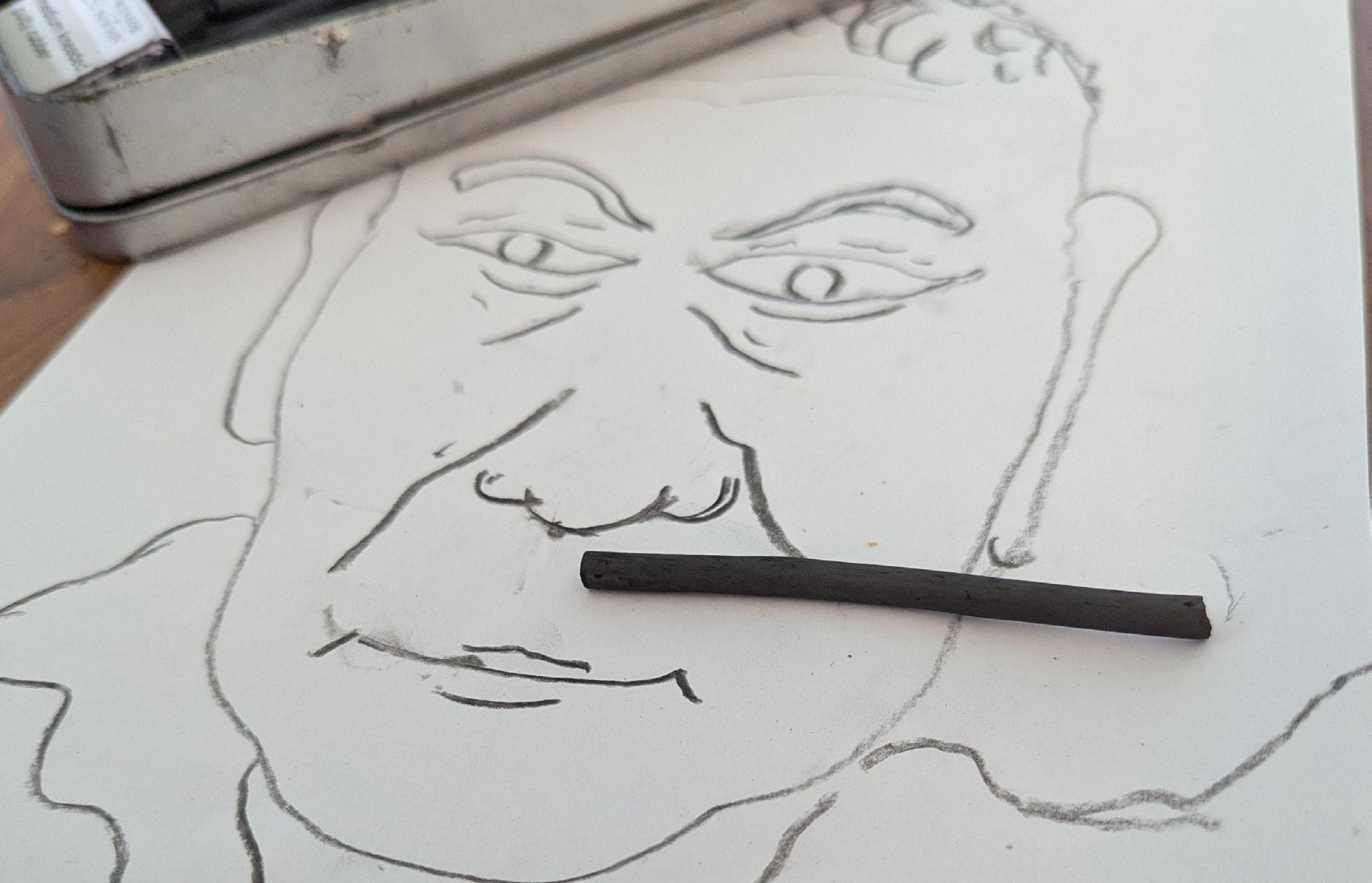



This autumn, Bipolar Scotland’s national conference, Time for Transformation, takes place on Thursday 9 October 2025 at the COSLA Conference Centre in Edinburgh.

This is a space for our members, supporters, professionals, and international guests to come together and explore how we can create real, lasting change in services, policy, and public understanding.
The day will bring together people living with bipolar, family members and those working in related sectors. The programme will feature:
• Lived experience voices, sharing personal journeys and transformative moments.
• Public health and government representatives, offering strategic and policy-level perspectives.
• International speakers, bringing global insights and innovation.
• Experts across mental health, including clinicians and advocates. Together, they’ll drive conversations that are both inspiring and actionoriented, helping us define and pursue real transformation in how bipolar is understood and supported across Scotland.

What’s included with your ticket?
• Entry to all workshops
• Key note speeches
• Hot lunch, refreshments and a goody bag
• Access to AL Sensory Room
• Influence our 2026 manifesto asks
• Networking and creative spaces
• Connection, community and inspiration

Ticket Information
• Members (waged): £50

• Members (unwaged): £25
• Professionals: £125
We want to see professionals from health, social care, education, and beyond at the conference too. To help make this possible, we’ve launched a Professional Group Rate: When two or more professional tickets are booked together, the price drops to £97.50 per person (more than 20% off the standard rate of £125).
This offer will run for a limited time only –please book soon to secure this discount.
Practical Details
Venue: COSLA Conference Centre, Verity House, 19 Haymarket Yards, Edinburgh EH12 5BH
Travel:
- By train: Haymarket Station is just a 2–3 minute walk from the venue, with frequent trains from across Scotland.
- By tram: The venue is served by the Haymarket tram stop, directly outside the station, with links to Edinburgh Airport and the city centre.
- By bus: Many Lothian Bus services stop at Haymarket.
- By car: There is no parking at the venue itself, but several options nearby:
• NCP Edinburgh Haymarket (a short walk from the venue)
• Morrison Street Car Park
• Metered on-street parking in surrounding streets (though spaces are limited and often in high demand).
Timings:
- Registration opens at 9.15am
- Conference begins at 10.00am
- We will close by 4.30pm
Food:
Tea, coffee and lunch are included in your ticket price, with vegetarian and vegan options available.
The COSLA Centre is fully wheelchair accessible. Please let us know if you have any specific requirements when booking (e.g. seating needs, BSL interpretation).
If you’re a member and worried about travel expenses, please get in touch in confidencewe’ll see how we can help.
This conference is called Time for Transformation because it’s about more than just one day. It’s about the conversations, connections and ideas that we hope will ripple out afterwards – helping to shape a better future for people with bipolar in Scotland.
We’d love you to be part of it.
Tickets are available now, but spaces are limited. If you’ve been thinking about it, don’t leave it
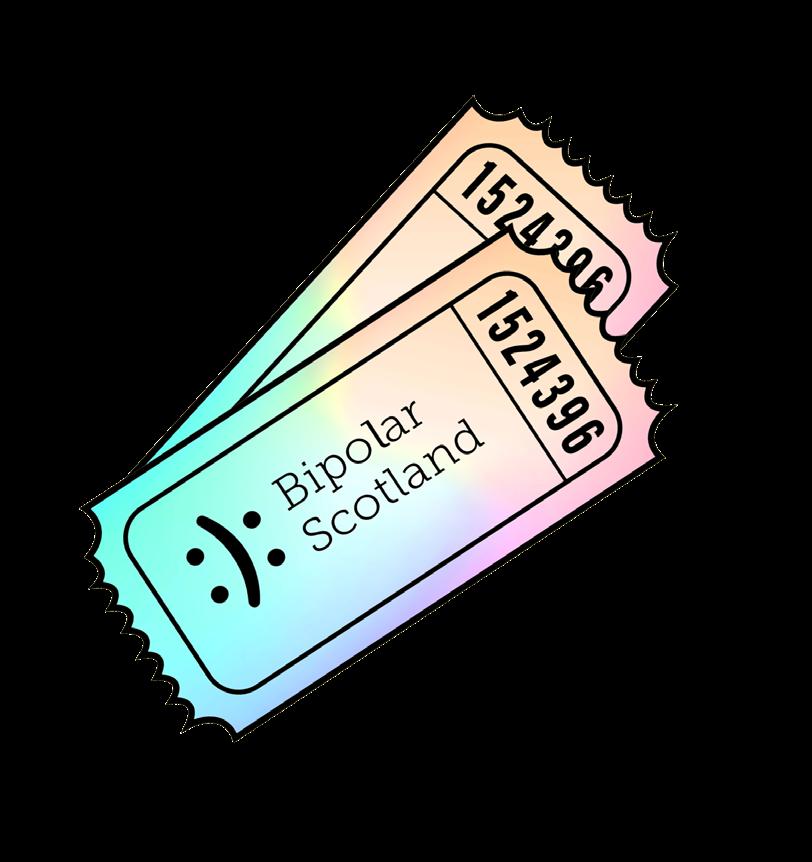
Your space to share your creative writing. If you’d like to submit a poem, story or piece of writing, please email us on info@bipolarscotland.org.uk with the subject line ‘On The Level Submission’.
By Colette MacFadyen
I took up creative writing, mainly poetry, in September 2023. I started with a poem called “Balance” which was a description of how I felt, which was extremely off balance. I had been very stressed with life and my moods were all over the place. Sometimes I get quite mixed moods so I was totally off balance and couldn’t get back on track.
After the first poem I started writing poems all the time. I found it was a release to me and helped me focus my thoughts. I have always loved journalling and writing about how I was feeling and what was troubling me, but I never appreciated how essential it was to my mental wellbeing. To get the thoughts out of my head instead of them circling round my mind tormenting me. It is also good when feeling high to try to calm the thoughts down and to slow your racing mind. I am sure you will all relate to this.
It helps you to see clearly and to challenge your thoughts better. This is especially true with the poetry as I like to type them up and put a little picture beside them. It helps me be creative which is a big part of who I am. I find that creative writing, especially poetry, is very positive and can be fun too. Sometimes you write a poem, and you wonder where the ideas come from. I just know they are so good for my mental health and wellbeing and wanted to share this with you all to help encourage you too.
There is no format to journalling and poetry. Just write what is on your mind and in your heart and hopefully you will feel the release and set your mind free too. It really does help. So, take pen to paper and give it a try.
Poems are great therapy They flow out of me
To clear my mind
Help me focus and see
It is good to be creative To do something fun A gift for myself
To share with everyone
Poems are my therapy
They help release me
To brighten my mood
And set my mind free

By Frankie M
Having Bipolar Type 2 can sometimes feel like a double-edged sword. I’m so happy at the start of hypomania and then so down by the end of an episode that I become worried when I’m too happy that it’s the start of an episode yet also worried when I’m sad that it could be the start of a depressive episode.
In May’s magazine, Collette MacFadyen wrote about neutral being her favourite mood. I can strongly relate to this as it comes with a peace of mind that everything is on an even keel and alright. Lately I have been worrying that my mood may be climbing as I have not been sleeping as well as usual. I have been reading the translated works of Rumi, Hafez and Khalil Gibran so I have been thinking that if there is a higher power, what I would pray for?
I wrote this short poem, even though I am not religious, as a kind of prayer if you will, for peace of mind to ease my worries. It’s about the faith, hope and guidance spirituality can provide.

I ask for your patience
While my mood is in flight.
I pray for your guidance
So my days remain light. I ask for your comfort
To stay rested at night. I pray for some support
To make sure my energy
Does not drain
Out of my body
And away from my brain.

By Gillian Sheriff
In a world that moves fast and demands constant productivity, one profoundly effective tool for proactive mental health management stands out: writing Whether through journaling, writing poetry, storytelling, or letters never sent, writing can serve as a powerful method for managing your bipolar symptoms.
Writing is more than just a form of communication; it is a means of processing thoughts and emotions. When you put pen to paper or fingers to keyboard, you externalize internal experiences. This act alone can reduce the intensity of feelings and help manage bipolar symptoms.
Mental health professionals have long recognized the therapeutic value of writing. Research has shown that expressive writing can lower stress, improve mood, and even reduce symptoms of depression. When practiced consistently, writing can lead to greater emotional clarity, increased resilience, and a better understanding of oneself.
One of the greatest benefits of writing is that it provides a safe, judgment-free space to express anything. Unlike verbal communication, which can be inhibited by social expectations or fear of judgment, writing is private and unfiltered. You don’t have to worry about being misunderstood. You can write as freely, honestly, and messily as you need to.
This unfiltered space is especially valuable for those who struggle to articulate their emotions. By writing regularly, you begin to develop a clearer vocabulary for your feelings, which in turn can improve how you communicate and relate to others.
You don’t need to be a skilled writer or poet to benefit from writing. What matters is
authenticity and consistency. Here are a few approaches that work well:
• Journaling: Write freely about your day, your thoughts, or specific situations. Don’t worry about grammar or structure.
• Gratitude Journals: List a few things each day that you’re thankful for. This helps train the mind to focus on positive aspects of life.
• Letter Writing: Write letters to people you’re angry with, miss, or want closure from — without sending them.
• Prompt-Based Writing: Use mental health prompts to explore deeper emotions or unresolved issues.
• Creative Writing: Channel your feelings into poems, stories, or metaphors. Sometimes, fiction can express truth better than reality.
Most importantly, writing can nurture self-compassion. When you write about your struggles, you’re acknowledging them instead of pushing them away. This act of self-validation is powerful. It tells your inner world, “You matter. I’m listening.”
Over time, writing can become a form of inner dialogue where you meet yourself with understanding rather than criticism.
Mental health management doesn’t always require complex solutions. Sometimes, it begins with a notebook, a quiet moment, and the courage to be honest with yourself. Writing is not a cure-all, but it is a meaningful and accessible tool to accompany therapy, mindfulness, and other healing practices.
In the end, writing is not just about what you create on the page — it’s about what you discover within yourself along the way.
Try some of our prompts to get started on your writing journey:
• What am I feeling right now? Why might I be feeling this way?
• What thoughts keep repeating in my mind lately?
• When was the last time I felt truly at peace? What contributed to that feeling?
Relief
• List 5 things that are in your control right now.
• What would you say to a friend going through what you’re going through? Say it to yourself.

• Describe your “safe place” — real or imagined — using all your senses.
• What do I need most from myself right now?
• Write a journal entry from your “future self” who has healed from what you’re going through.
• What are 3 things I’m proud of myself for today — even small ones?
Charles Bukowski, American author;
“Nothing can save you, except writing. Three or four nights out of seven. If I don’t get those in, I don’t feel right. It keeps the walls from failing, the hordes from closing in. it blasts the darkness. Writing is the ultimate psychiatrist.’
Graham Greene, British author and playwright
“Writing is a form of therapy; sometimes I wonder how all those who do not write, compose, or paint can manage to escape the madness.”
Anaïs Nin, French American author
“We write to taste life twice, in the moment and in retrospect.”
As the theme of this issue is bipolar’s relationship with creativity, here are a few insights from some (very!) creative people into the question.
“I love who I am, and I love how my mind works, because it is who I am. But I am so grateful that I now have a better relationship with it.” - Selena Gomez
“It’s not a coincidence, it can’t be, that so many comedians suffer from depression. As for whether the hypomanic side of bipolar can be said to help creativity, I hesitate to say yes because of all those out there living
with the disorder who are not in creative industries…But certainly, the energy, selfbelief, exuberance, tirelessness, optimism, and, yes, grandiosity that mark out hypomania can really help one achieve much in terms of writing and creation.”- Stephen Fry
“Though I am often in the depths of misery, there is still calmness, pure harmony and music inside me. I see paintings or drawings in the poorest cottages, in the dirtiest corners. And my mind is driven towards these things with an irresistible momentum.”
- Vincent Van Gogh
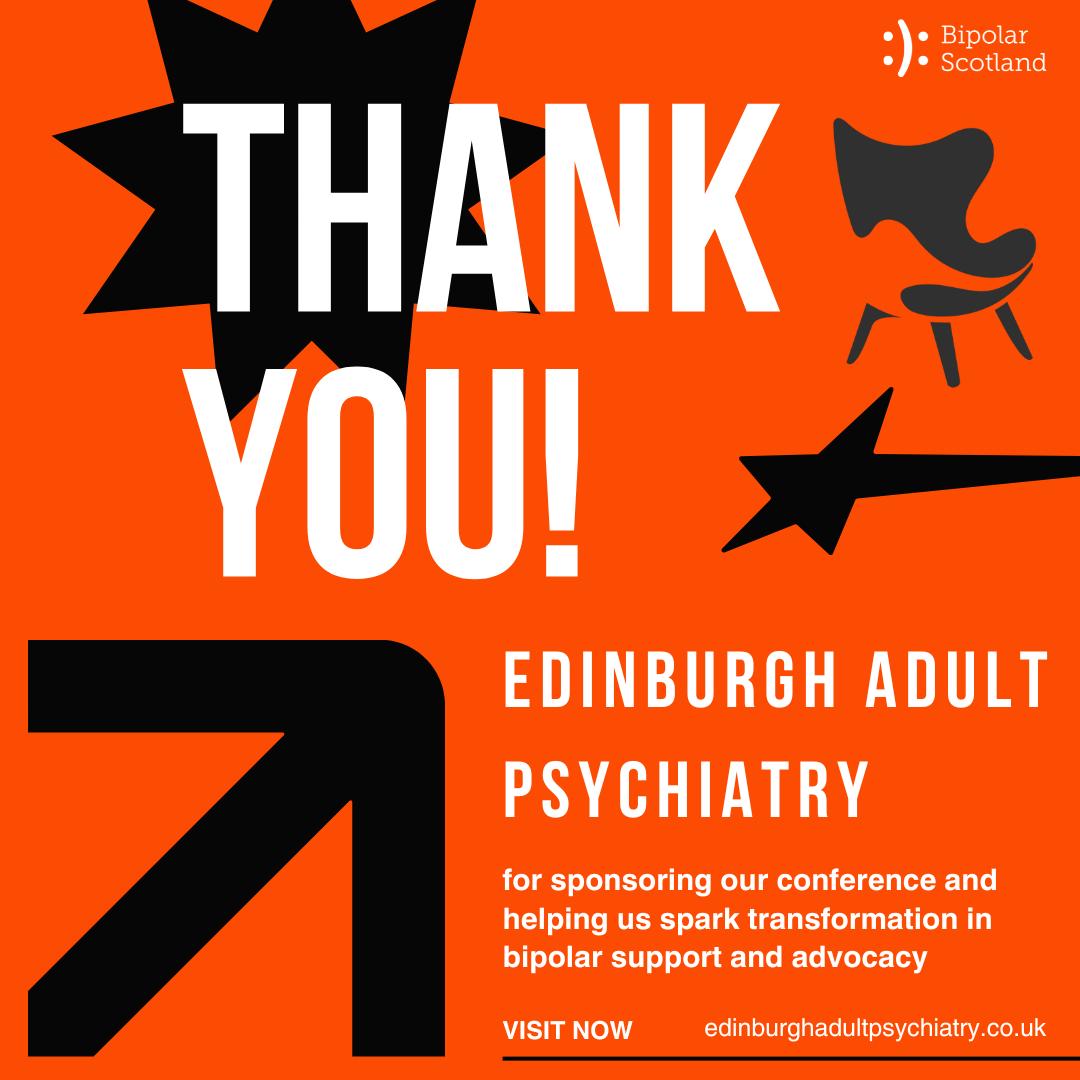
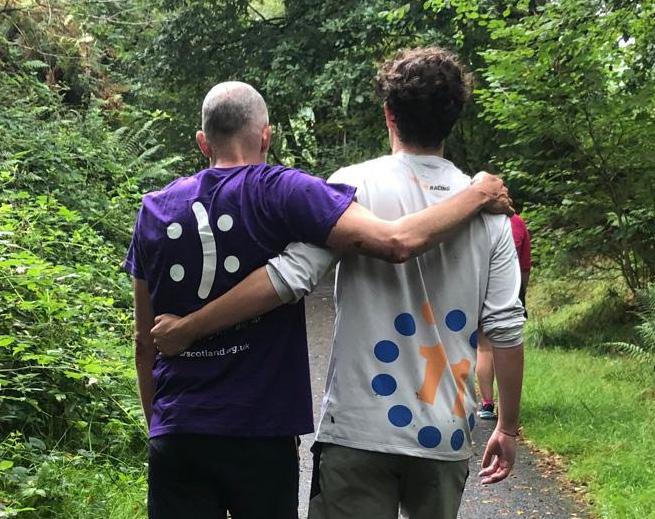
As we approach the end of 2025, things are really picking up here at Bipolar Scotland. We’re delighted to share details of two exciting events coming up this September and October, and we’d love for you to be part of them.
Tribute Afternoon at The Bungalow, Paisley
On Sunday 28th September from 12–5pm, we’ll be teaming up with the Brick Lane Music Academy to host a fantastic afternoon of music and fundraising at The Bungalow in Paisley.
The line-up features two brilliant tribute bands:
• Republic of Soul - 7 piece Soul Band, Classic Soul, Natty Ska and Stompin’ Rock & Roll
• Shout! – a 9 piece 60’s Tribute act
There will also be an amazing raffle, with prizes including an iPad and a special treat from St Mirren Football Club. Every ticket sold and raffle entry purchased helps us support people across Scotland living with bipolar, as well as their families and friends. You can find full details and book your tickets online here: https://tinyurl.com/4h35pp5w
Glasgow Airport Bucket Collection
Just a few days earlier, on Thursday 10 October (11am–3pm), we’ll be at Glasgow Airport for a bucket collection. This is a fantastic opportunity to raise both funds and awareness – and we’re looking for volunteers to join us. Even an hour or two of your time would make a huge difference.
Adding to the atmosphere, we’re thrilled that the Rockus Choir will be performing live in the terminal, bringing plenty of music and energy to the day.
If you’d like to volunteer, please contact Jenine at jeninep@bipolarscotland.org.uk.
Both events are more than just fundraisers – they’re a celebration of community, music, and hope. Whether you come along to Paisley or help out in Glasgow, your support will make a real difference in ensuring no one in Scotland has to face bipolar alone.
Huge congratulations and massive thanks to Simon Bradstreet and his son Joe for raising over £1000 for Bipolar Scotland at the Aberfoyle 10K run!
Just for context, £1000 can:
Fund 20 peer support group meetings –creating safe spaces for up to 400 people to connect and share experiences
Provide 44 one-to-one peer support sessions – offering guidance, hope and practical help to those who need it most.
Deliver nearly 3 full online selfmanagement training courses – giving dozens of people the tools to live well with bipolar.
We’ll make sure your hard won money is put to good use!

Our friends at MWCFS have advice on how to plan ahead in case you or someone you care about loses the ability to make certain decisions.
Although I write here as a worker for the Mental Welfare Commission and it is sometimes hard to see creativity in that role, creativity is a huge part of my personal life, but sometimes also in my work.
In recent months, Keira Mclean from the Workers Education Association has been working with the Fife Hearing Voices group to create a Zine which highlights what members of the group think the ideal mental health service would look like in the area. It was great seeing this work develop and lovely to recognise that this is a way of making a point which becomes so much more powerful through the creativity of its members.
In my work I regularly give speeches. Now that may not seem like creativity, but using lived experience to develop a theme or illustrate a point can be so much more effective than a set of agenda items. I often meet people who say they have never forgotten a speech I have given in the past. The power of words and the power of words created for impact is such a good way of helping people understand and shift their thinking. I think it relates to the theme of Comfort and Disturb for the current Scottish Mental Health Arts and Film Festival: sometimes what we go through, if expressed with some kindness, can influence and possibly disturb the thoughts some people have about us and so make lasting differences.

By Graham Morgan
In my personal life I get a lot of my support from Jeans Bothy, the mental health and wellbeing hub in Helensburgh. I love the photography group and the therapeutic writing group and the book club. I mainly go to them for company and conversation in a place I can just be myself, but I also love to see what we create and I really like the exhibitions and events we develop to raise awareness, challenge and provoke conversation.
They tend to be a mixture of image, spoken word, printed word, objects which make a point, all spread around the submarine museum for the community to see, experience and talk about.
I write all the time and have a weekly substack post usually on a mental health theme. I love the conversations that this can spark with people I have never met. If I am really lucky I get into a place with my writing where there is almost a flow and melody to what I say. That makes me feel wonderful but is less common nowadays than I wish.
In November I will be doing an event in Daydreams Bookshop in Milngavie talking about my memoirs, what it is like to be on a section, to have beliefs other people find alien but also talking about the delight I have being with my family and with Dash the dog. I’m looking forward to that.
We all have stories in us and they are all important. I love to hear people’s stories and views. In my work it is nearly always the direct experiences that people tell me about that have the biggest impact. They can reveal truths a text book can never really reach at all.

“We all have stories in us and they are all important. I love to hear people’s stories and views”.
At Bipolar Scotland, our support groups are at the heart of what we do and we want to make sure they continue to meet the needs of everyone who attends. By sharing your experiences in the survey below - what works well, and where we could do better - you’ll help us strengthen and improve our support.
It should only take around 5mins to complete. Your responses are anonymous, and all feedback will be treated with respect and confidentiality.
Together, we can make our support groups the best they can be!
https://tinyurl.com/bdzyw95v
We’re excited to introduce three new Bipolar Scotland support groups that are now open to members. We’d love for you to join us.
West Dunbartonshire
In Person
Meeting Time: 4th Wednesday of each month from 7pm-9pm Where: Concord Community Centre, St Mary’s Way, Dumbarton, G82 1LJ
Online
Meeting Time: 2nd Wednesday of each month from 7pm-8pm
Where: Near Me, Online video conferencing.
East Lothian (Online)
Meeting Time: 4th Thursday of each month from 7pm-8pm Where: Near Me, Online video conferencing.
Dumfries and Galloway (Online)
Meeting Time: 3rd Tuesday of each month from 7pm-8pm Where: Near Me, Online video conferencing.
How to join:
All groups are free to attend. To find out more or sign up, visit Support Groups –Bipolar Scotland), contact us at info@bipolarscotland.org.uk or on 0141 560 2050. Please see the next two pages for our existing support group schedule.
https://bipolarscotland.org.uk/ support-groups/
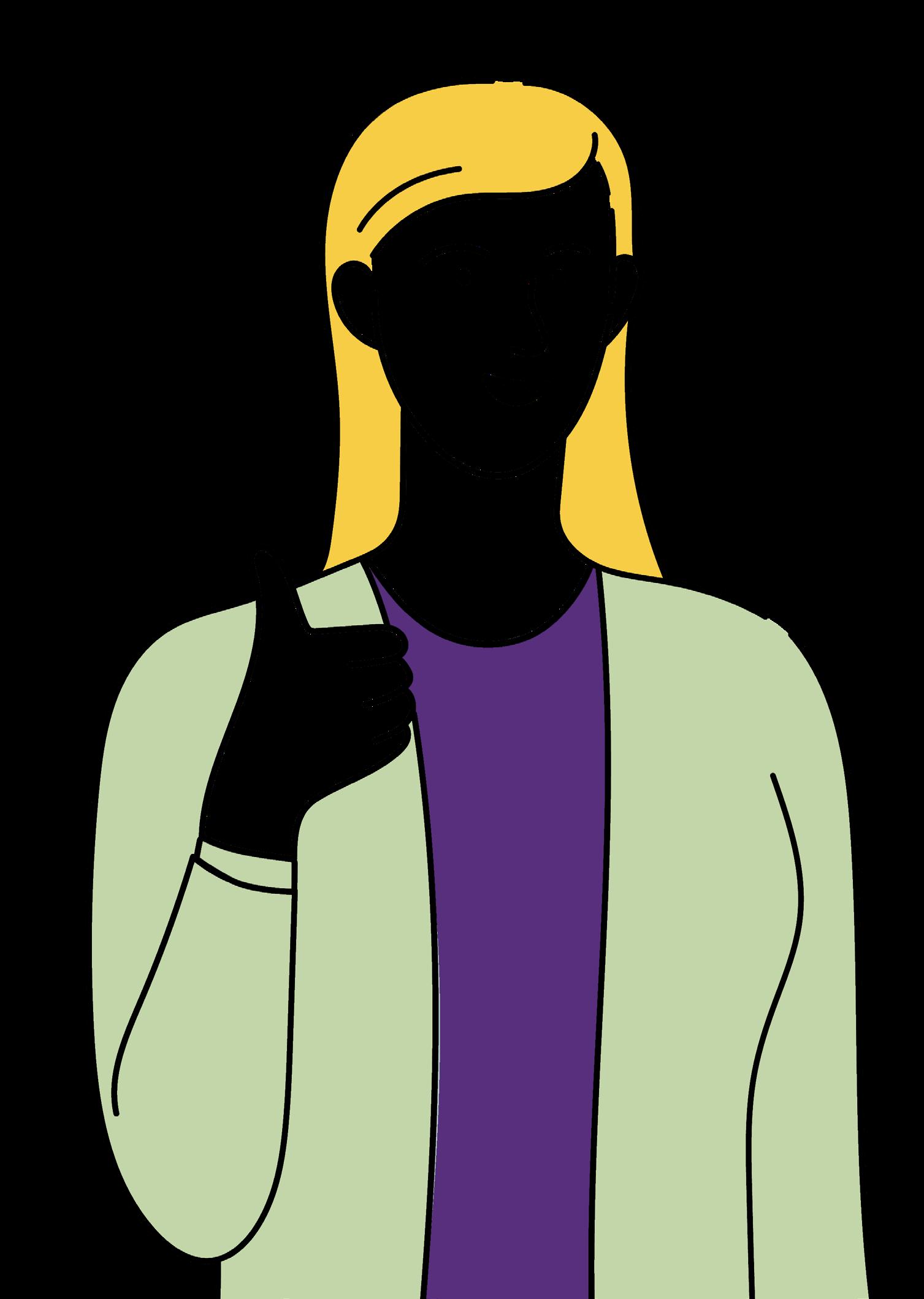
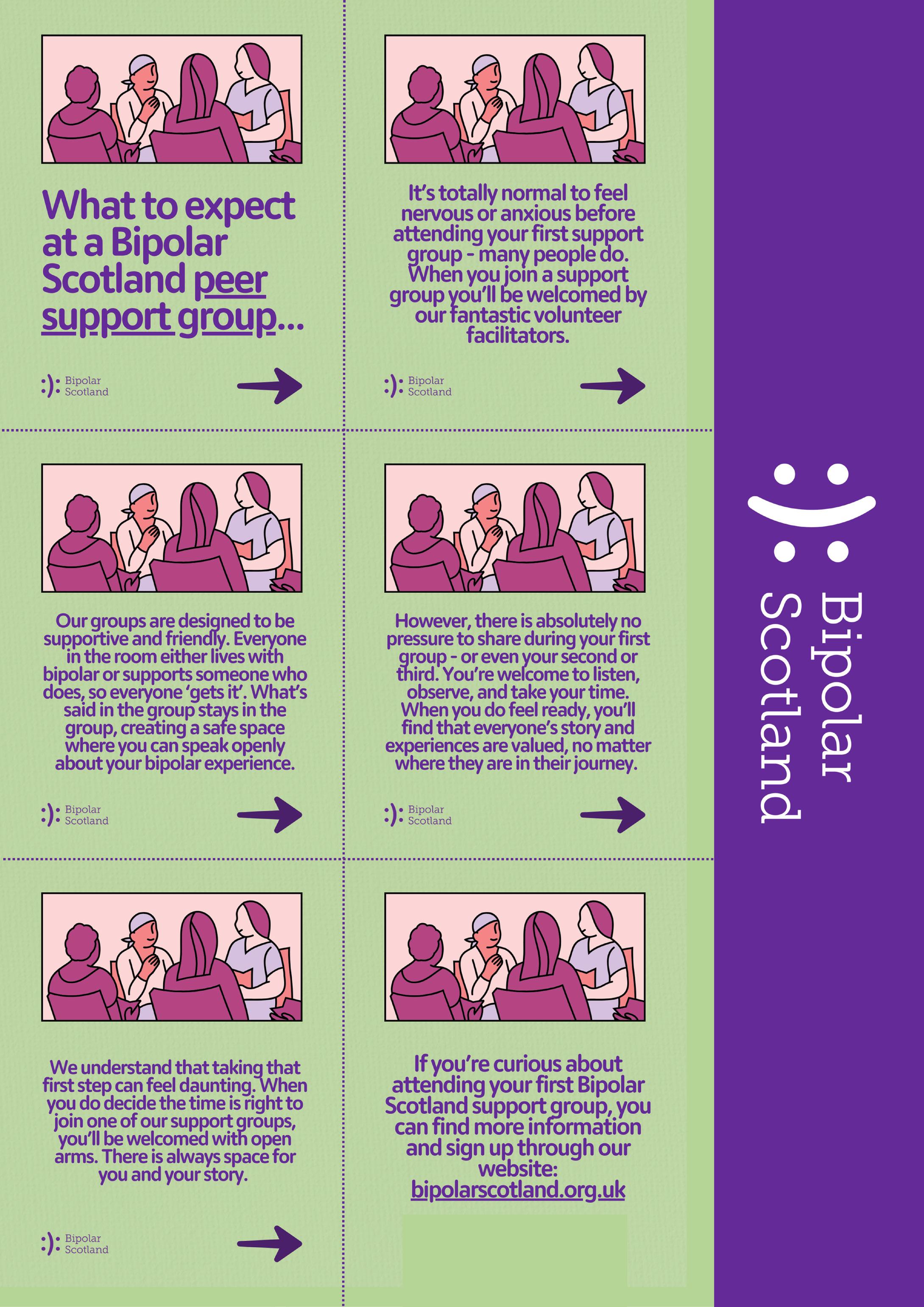
We run online and in-person peer support groups across Scotland – friendly, safe spaces for anyone living with or affected by bipolar. Here’s a full list of all our groups running during October and November. Why not talk to people who get it?
To access an online support group, please visit https://bipolarscotland.org.uk/gethelp/support-groups/ to sign up.

SCOTLAND-WIDE (ALL ONLINE)
BIPOLAR BLETHER: For anyone living with or affected by bipolar in Scotland. Sunday 5 October and Sunday 2 November, 3-4pm.
18-30: For anyone aged 18-30 affected by bipolar in Scotland. Wednesday 1, 15 & 29 October and Wednesday 12 & 26 November, 7-8pm.
FRIENDS & FAMILY: For carers and loved ones. Monday 20 October & Monday 17 November, 7-8pm.
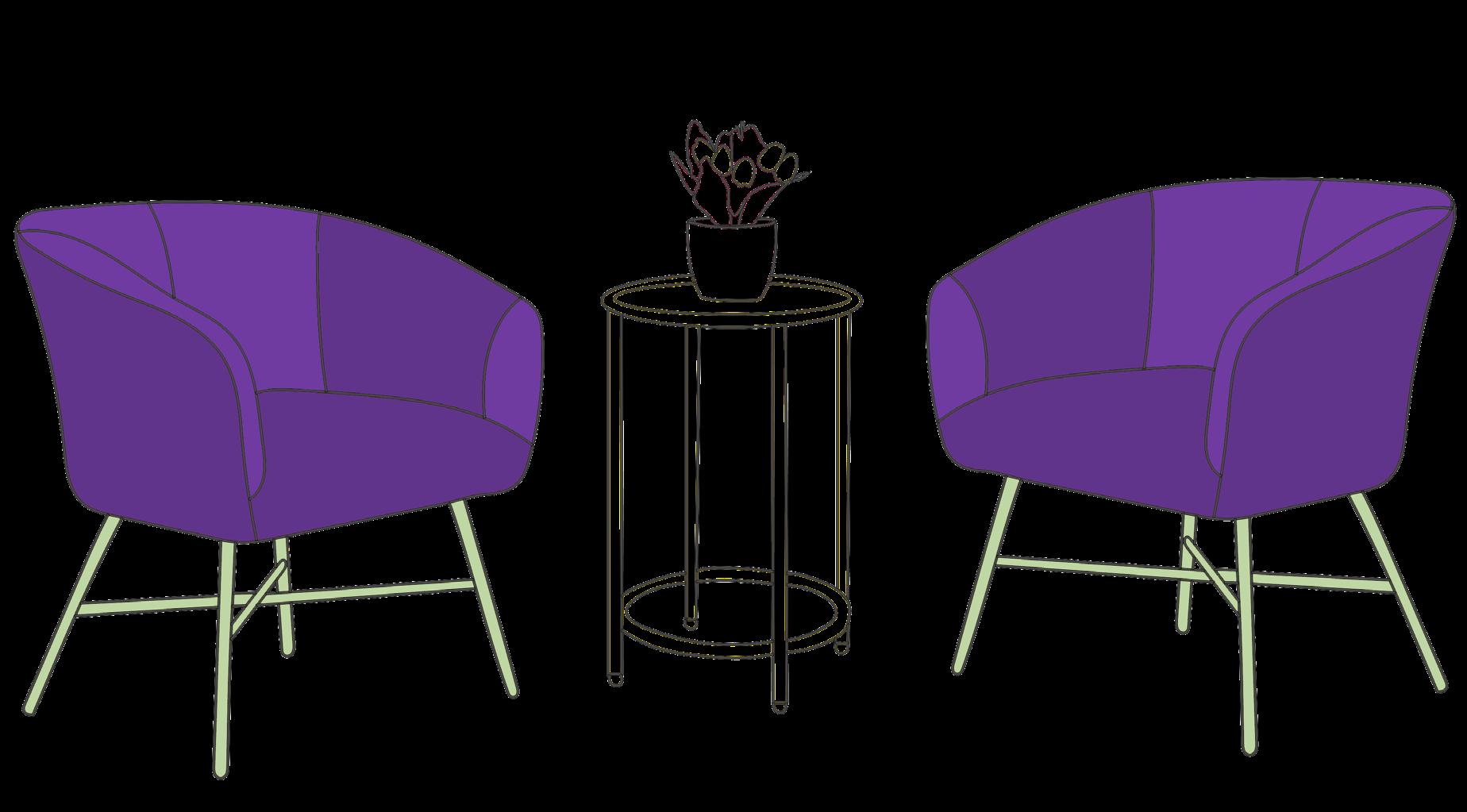
AYRSHIRE & DUNDEE
Ayrshire & Dundee online group: Tuesday 7 October & Tuesday 4 November, 7-8pm.
• Dundee in-person (Dundee Volunteer and Voluntary Action, 10 Constitution Rd, Dundee, SS1 1LL): Thursday 2 October and Thursday 6 November, 7-9pm.
• Borders online group: Wednesday 1 & 15 October and Wednesday 5 & 19 November, 7-8pm.
• Fife & Forth Valley online group: Tuesday 14 & 28 October and Tuesday 11 & 25 November, 7-8pm.
GLASGOW
• Glasgow City online group: Sunday26 October & Sunday 23 November, 7-8pm.
• Glasgow City in-person (Premier Inn, Glasgow City, 187 George St, Glasgow, G1 1YU): Wednesday 8 October & Wednesday 12 November, 7-9pm.
• Glasgow West online group: Sunday 12 October & Sunday 9 November, 7-8pm.
• Glasgow West in-person (Partick Trinity Church, 20 Lawrence St, Partick, Glasgow, G11 5HG): Wednesday 22 October and Wednesday 26 November, 7-9pm.
HIGHLANDS & ISLANDS
• Highlands & Islands online group: Thursday 16 October & Thursday 20 November, 7-8pm.
• Highlands & Islands in-person (Café 1668, 86 Church St, Inverness, IV1 1EP): Thursday 2 October and Thursday 6 November, 7-9pm.
• North Lanarkshire in-person (Coatbridge Community Centre, 9 Old Monkland Rd, Coatbridge, ML5 5EA): Monday 13 October & Monday 10 November, 7-9pm.
PAISLEY
• Paisley online group: Monday 13 October & Monday 10 November, 6-7pm.
• Paisley in-person (Methodist Central Hall, 2 Gauze St, Paisley, PA1 1EP): Monday 27 October & Monday 24 November, 6-7.30pm.
WEST DUNBARTONSHIRE
• West Dunbartonshire online group: Wednesday 8 October & Wednesday 12 November, 7-8pm.
• West Dunbartonshire in-person (Concord Community Centre, Dumbarton, St Mary’s Way, G82 1LJ): Wednesday 22 October & Wednesday 26 November, 7-9pm.
WEST LOTHIAN
• West Lothian in-person (Bathgate Community Centre, Lindsay House, South Bridge St, Bathgate, West Lothian, EH48 1TS): Thursday 13 November, 7-9pm.
Image: Vecteezy.com
Want to get in touch with us?
Until the 1st of October 2025 Bipolar Scotland is based at: Studio 40, Sir James Clark Building Abbey Mill Business Centre Seedhill Road Paisley, PA1 1TJ
Then from the 1st of October 2025 we can be reached at: Studio 10 Anchor One 7 Thread Street Paisley PA1 1JR
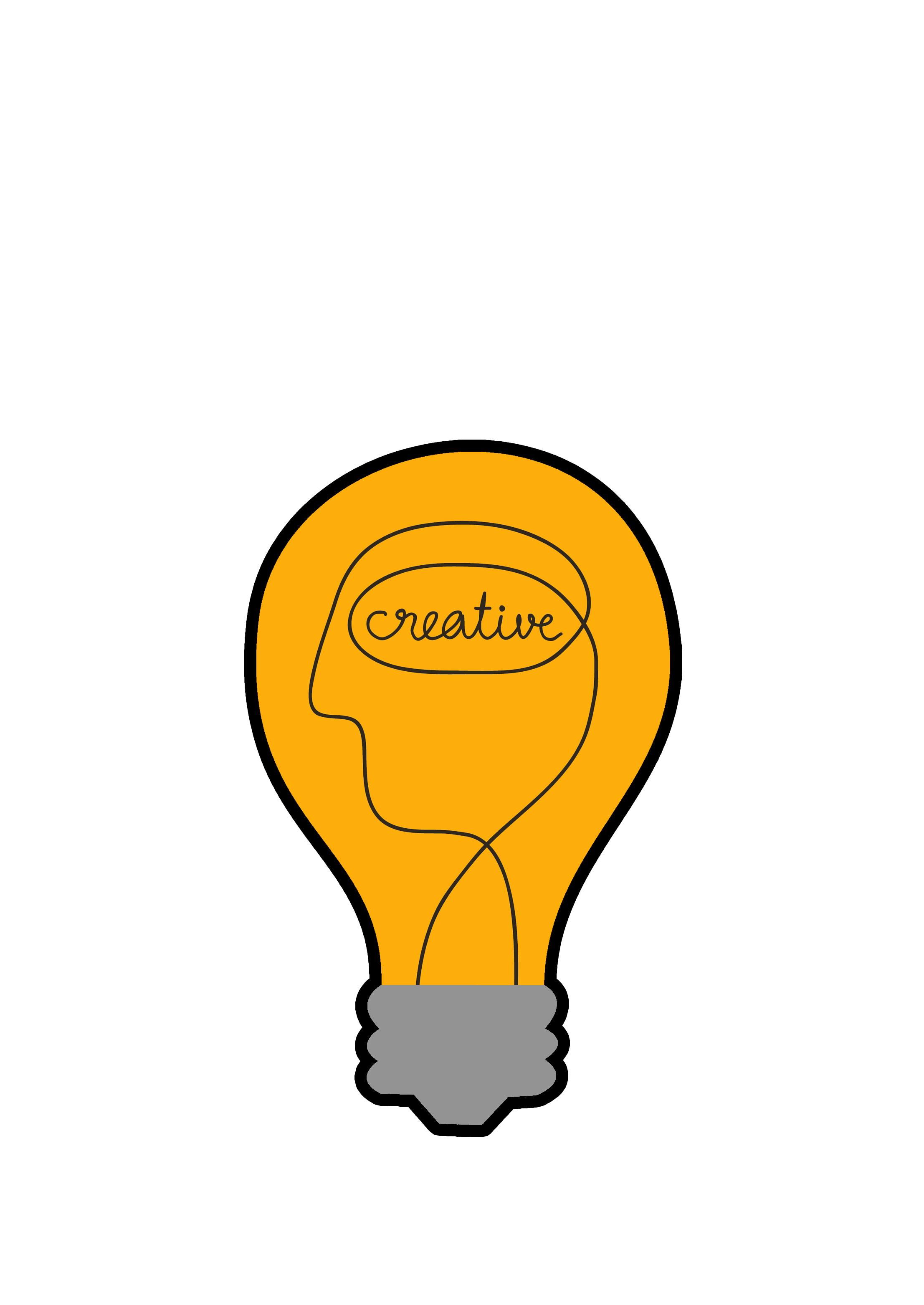
You can contact us by phone between 9.30am – 3:30 pm, Monday to Thursday, on: 0141 560 2050, or by email on info@bipolarscotland.org.uk
We’re also on Instagram: (@bipolar_scotland), and Facebook: (bipolarscotland1)
Charity Number: SC021705 Company Number: 163306 bipolarscotland.org.uk